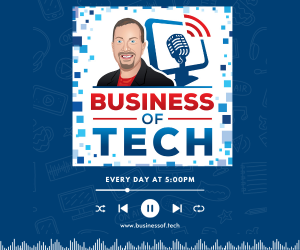The Legal Landscape Shifts: A Wake-Up Call for MSPs
The lawsuit filed by The New York Times against Microsoft and OpenAI marks a significant moment in the evolving narrative of AI and copyright laws. For Managed Service Providers (MSPs), this is more than just a headline; it’s a wake-up call to the shifting legal landscape surrounding AI technologies.
Understanding the Case
The crux of the lawsuit lies in the alleged unauthorized use of The New York Times’ content to train AI models like ChatGPT and Copilot. The Times argues that this not only infringes on its copyright but also impacts its revenue streams. The tech giants have banked on the ‘fair use’ defense, a stance that is now under legal scrutiny.
Implications for MSPs
For MSPs, this lawsuit underscores a critical need to reassess the legal foundations of the AI tools and services they provide. The outcome could redefine the boundaries of ‘fair use’ in AI, affecting how MSPs access and utilize data for AI training and application development.
Risk Management and Compliance
MSPs must now place a greater emphasis on risk management and compliance strategies. The legal uncertainties demand a proactive approach in reviewing the sources of data used in AI services. It’s essential to ensure that data usage complies with current copyright laws, and to prepare for potential shifts in these laws.
Innovation vs. Regulation: Striking a Balance
This case also brings to the fore the perennial tug-of-war between innovation and regulation. MSPs are at the forefront of harnessing AI for transformative solutions, yet they must navigate an increasingly complex regulatory environment. Finding a balance between innovation and compliance will be key to their continued success.
Partnerships and Ethical Considerations
The lawsuit also highlights the importance of ethical considerations and responsible partnerships. MSPs must prioritize collaborations with technology providers who demonstrate a commitment to ethical AI use and respect for intellectual property rights.
Preparing for the Future
As the case unfolds, MSPs must stay informed and agile. It’s crucial to monitor the developments of this lawsuit and understand its broader implications on the AI ecosystem. This is not just about adapting to change; it’s about being at the forefront of defining it.
Conclusion
The New York Times’ lawsuit against Microsoft and OpenAI is more than a legal battle; it’s a harbinger of change for the MSP industry. As the narrative around AI and copyright laws evolves, MSPs must navigate this new terrain with caution, responsibility, and a forward-thinking mindset.
Image:
Watercolor painting of a picturesque city park in the early morning. The scene features two prominent banners, one displaying a logo with four colorful squares resembling a window, symbolizing openness and innovation, and another with the elegant ‘New York Times’ lettering in a classic style, reflecting the essence of journalism. The emotion is peaceful, highlighted by the soft morning light and gentle shadows. The scene includes park benches, lush trees, and a winding walking path, all rendered in a soft, impressionistic watercolor style.
GenID: rjCfcDqBi59V9cG7
Seed: 2893035274



